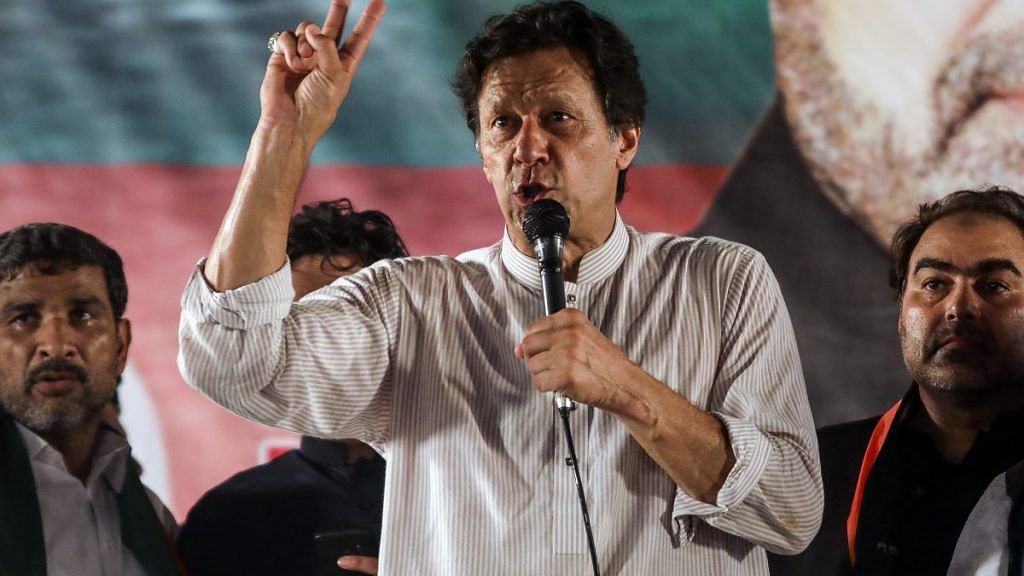Pakistan Prime Minister Imran Khan has managed to alienate a large part of his constituency — the youth. The PTI government has banned PlayerUnknown’s Battlegrounds, or PUBG, an online multiplayer video game, saying that it was addictive, a waste of time and was posing a negative impact on the psychological and physical wellbeing of the youngsters. Calls to lift the ban have been on ever since with many PUBG players and supporters now threatening to sit on dharnas on the Sindh-Punjab border.
If religious ideology, morality and waste of time are the yardsticks to ban one game, then the Imran Khan government might as well shut down the entire digital space. For no one wholly complies to the standards set by the regulator, Pakistan Telecommunication Authority (PTA). It is safe to say that morality lies in the eyes of the regulator.
The Islamabad High Court, which is hearing a petition challenging the ban, was told by the PTA that PUBG contained some “explicit scenes” and “anti-Islam material”. The same charge could apply to TikTok, which is facing a ban petition of its own.
This is not the first time that Pakistan has banned a video game. In 2013, war-themed games Call of Duty and Medal of Honor were removed from store shelves for showing Pakistan as a safe haven for terrorists. According to the shop owners, these games showed Pakistani intelligence agencies as supporting al-Qaeda and other jihadi organisations. Valkyrie Drive: Bhikkhuni was banned because of its sexual content and glorification of gay romance in 2017.
Also read: Pakistanis are saying ‘mandir nahi banaenge’. Fatwas follow Hindu temple construction
The thumb rule
PUBG had been in hot waters in Pakistan for a while. There have been at least three reports of death by suicide, which the PTA cited as one of the reasons while banning the game. The young men who died, according to their families, were PUBG addicts who couldn’t take the pressure of not “completing a mission” and hence took their own lives.
So some action against the game was forthcoming, and anyone aware of Pakistan’s history of dealing with a situation it can’t handle would have easily guessed that banning the game was going to be the Imran Khan government’s first response. The festival of Basant, in which people fly kites, continues to be banned in Pakistan since 2005, when the Supreme Court, in a bid to prevent loss of lives from the chemical-laced strings, gave the order. The Punjab government had announced it was lifting the ban in 2019 but it withdrew its decision even before it could come into effect.
Not surprisingly then, banning PUBG was easier than regulating its consumption or addressing issues around mental health. But here’s the irony: the same Imran Khan government had argued against total lockdown to fight the coronavirus pandemic by saying that just because traffic accidents cause deaths doesn’t mean we should ban cars.
Also read: Fake pilots have done to Imran Khan’s Naya Pakistan what even Trump couldn’t
Out of touch with reality
So what will Pakistan achieve from banning PUBG, other than angering the youth? Just like how citizens lost their livelihoods after the ban on Basant, the decision to ban PUBG will similarly disrupt many people’s lives. PUBG, beyond being an addiction for a few, is a source of entertainment for the youth locked in their homes for the past four months due to the coronavirus pandemic.
It is also clear that the Imran Khan government doesn’t realise how big the e-sports or digital gaming industry is. For instance, PUBG Mobile was the highest-earning game worldwide in May 2020, making more than $226 million. Similarly, gamers in Pakistan want the government to support them so that they could develop “games like PUBG”. There are professionals who are looking for ventures to invest. But then Pakistan doesn’t want PUBG even for entertainment purposes.
Pakistan often boasts about having the largest population of youth, yet it fails to take them on board when making decisions that directly impact them. Just like the rest of the affairs of the country, those deciding the fate of PUBG have no stake in the gaming industry.
Also read: Guess who the Imran Khan govt is blaming for Covid spike? The ‘jahil’ people of Pakistan
Angering the youth
As protests against PUBG as well as TikTok continue, Pakistan’s younger population is taking the battle royale to social media, with hashtags such as #UnBanPUBGPakistan and #PUBGKaJawabDou.
The promise of Digital Pakistan, of making the country a technological superpower won’t come true if the Imran Khan government doesn’t give a second thought before angering the community on whose shoulders lies the responsibility of fulfilling that promise: the youth. So what if the game is not played on a field, like the sport prime minister used to professionally play in his younger days? Pakistan’s team Freestyle deserves every support to win the PUBG Mobile World League 2020 (East Season Zero).
Team Free Style leader Abdul Haseeb Nasir pleads with Prime Minister @ImranKhanPTI to urge PTA to Unban @PUBGMOBILE in Pakistan so that they can participate in World League #PMCO #FreeStyle #UNBANPUBGPAKISTAN pic.twitter.com/TkvOWlkKNb
— Nabeel Hashmi (@iNabeelHashmi) July 10, 2020
After all, we have been asked to believe that real national leadership is found after winning a world tournament. Case in point: the 1992 Cricket World Cup.
The author is a freelance journalist from Pakistan. Her Twitter handle is @nailainayat. Views are personal.
